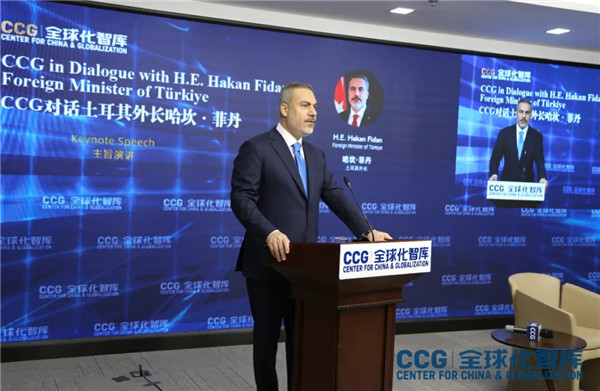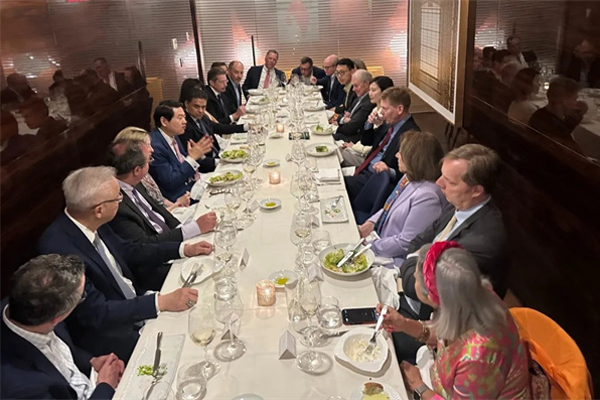Tackling Plastic Pollution: What Role for the WTO?
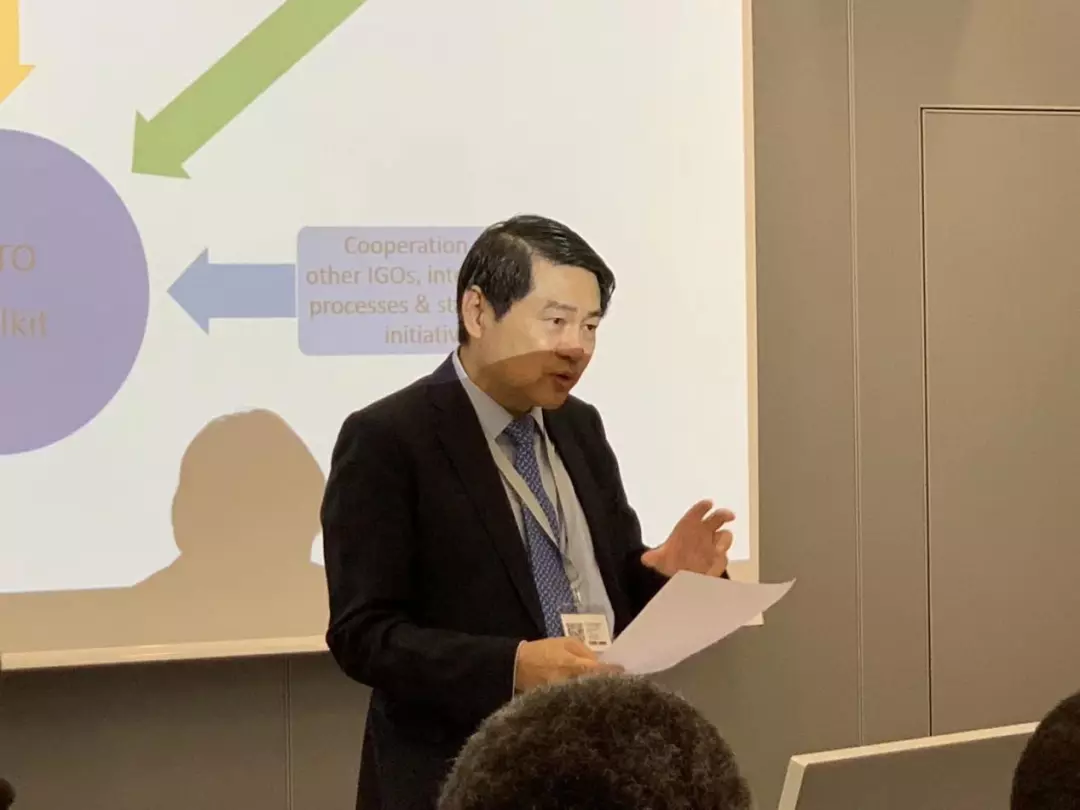
From October 8-11, the World Trade Organization (WTO) held the 2019 WTO Public Forum at its Geneva headquarters in Switzerland. Under the theme “Trading Forward: Adapting to a Changing World”, the forum brought together representatives from government, the private sector, civil society, and academia to debate rapid changes in technology, demography, and climate, as well as to consider how the international trading system can adapt to these changes and remain relevant.
On October 8, President of the Center for China and Globalization (CCG) Wang Huiyao and CCG Secretary-General Miao Lu attended the 2019 WTO Public Forum. During the forum, they also participated in a panel discussion, “Tackling Plastic Pollution: What Role for the WTO?”. It was organized by the Global Governance Centre and the Centre for Trade and Economic Integration.

Next steps for tackling plastic pollution
With increasing plastic pollution, a stable structure of global policies is needed to enhance the sustainability of producing and consuming plastic products. The panel “Tackling Plastic Pollution: What Role for the WTO?” was moderated by Carolyn Deere Birkbeck, senior researcher at Global Governance Centre at the Graduate Institute. The panel aimed to share experience, forge consensus, and strengthen the WTO’s role in global environmental management and sustaining the multilateral trade system. Wang delivered a keynote speech in this panel discussion.
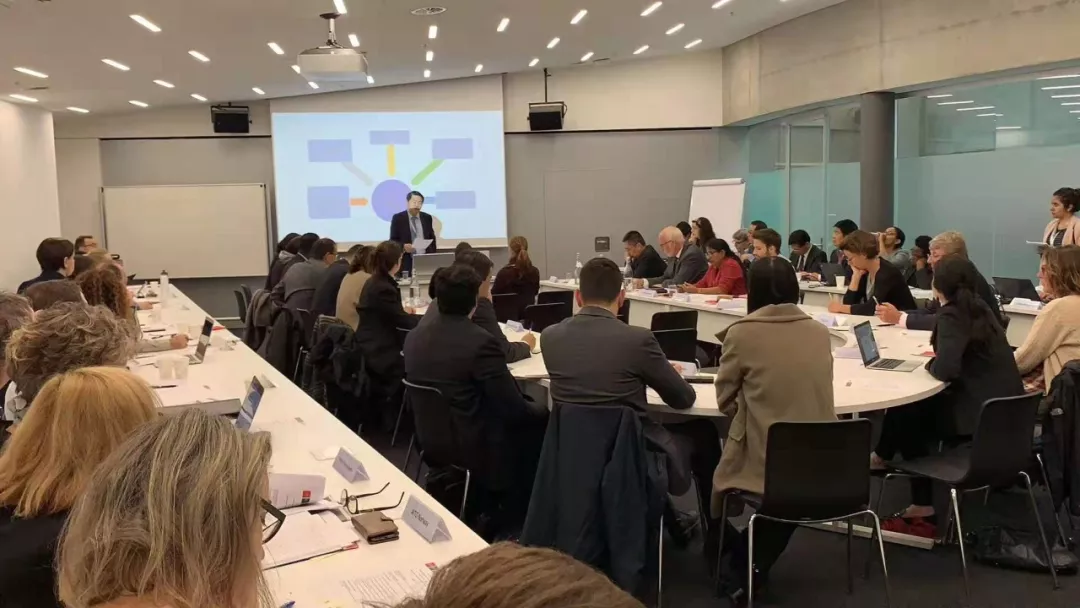
Wang said that the Osaka Declaration reached by G20 leaders this year indicated that a global consensus has formed around environmental protection, even as tensions continue over international trade. Plastic pollution cannot be ignored in the process of environmental protection.
He noted that since the 1950s, humans have produced about 830 million tonnes of plastic, of which nearly 80 percent has gone into landfills or the natural environment. Microplastic particles are a particular concern, absorbing large amounts of bacteria before being ingested by marine animals and eventually ending up in the human food chain.
Wang said that possible ways to reduce plastic waste include building effective global management systems and developing the WTO’s key functions in multilateral cooperation and global governance. It is also important to promote green, low-carbon lifestyles.
Four recommendations to reduce plastic waste under the WTO
Wang gave four recommendations to promote global cooperation under WTO mechanisms in order to reduce plastic pollution and strengthen the global consensus on environmental management.

First, WTO member states should devote more to plastic pollution management to promote transparency among members.
Second, WTO members should carry out mutual supervision of whether each state is implementing relevant bans and measures.
Third, the WTO could work together with other governmental organizations and institutions to participate in the management of plastic pollution.
Fourth, the WTO could strengthen multilateral cooperation, develop advanced global standards for plastic pollution, and work with the International Organization for Standardization (ISO) and the World Custom Organization (WCO) to formulate integrated standards. The current system for managing plastic pollution lacks a global database and related measurements and standards.
Also participating in the panel discussion were Xiangchen Zhang, ambassador and permanent representative of China to the WTO, Dagfinn Seril, ambassador and permanent representative of Norway to the WTO, Gothami Silva, ambassador and permanent representative of Sri Lanka to the WTO, Didier Chambovey, ambassador and permanent representative of Switzerland to the WTO, Mere Falemaka, ambassador and permanent representative of the Delegation of the Pacific Islands Forum to the WTO, Ramses Joseph Cleland, ambassador and permanent representative of Ghana to the WTO, Paolo Garzotti, deputy head of Mission, Permanent Mission of the European Union to the WTO and Thomas Haidon, deputy permanent representative of New Zealand to the WTO.
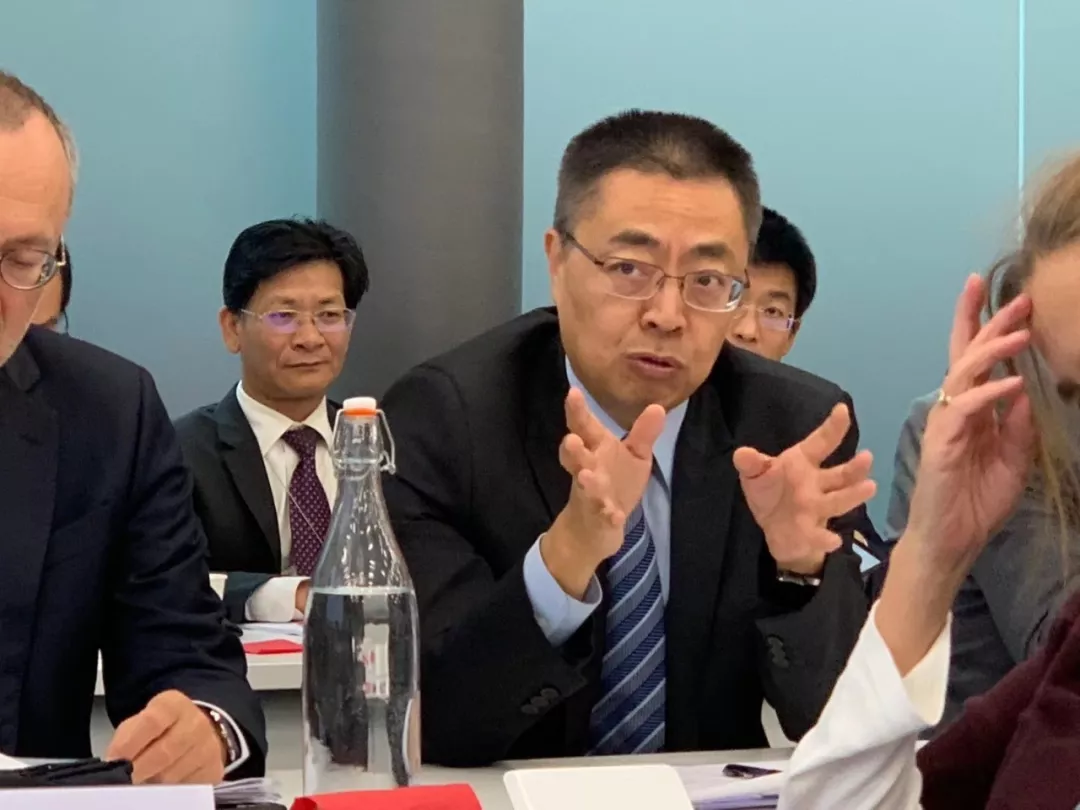
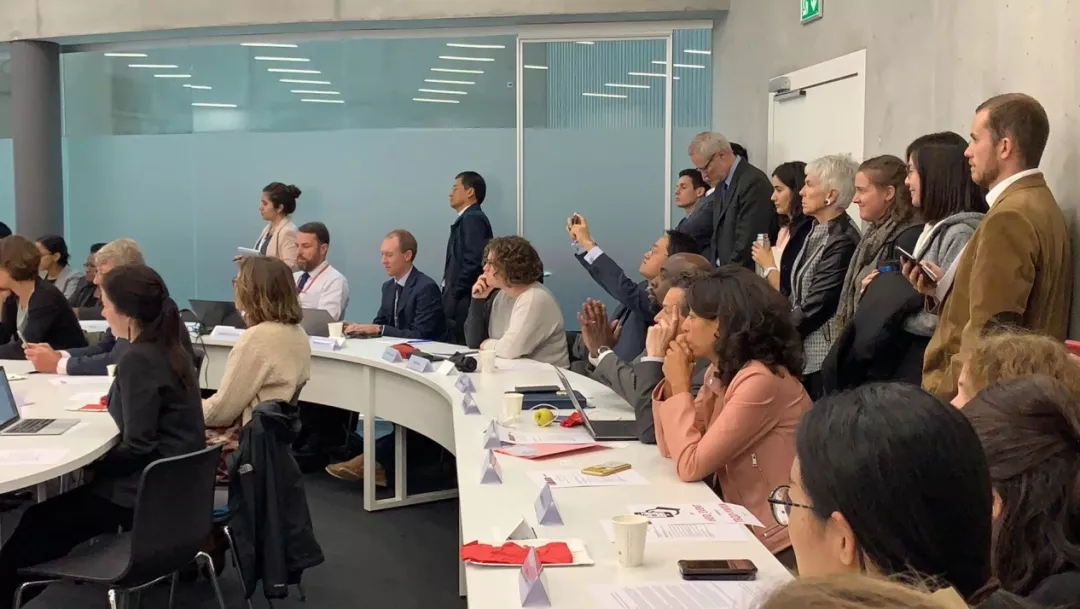
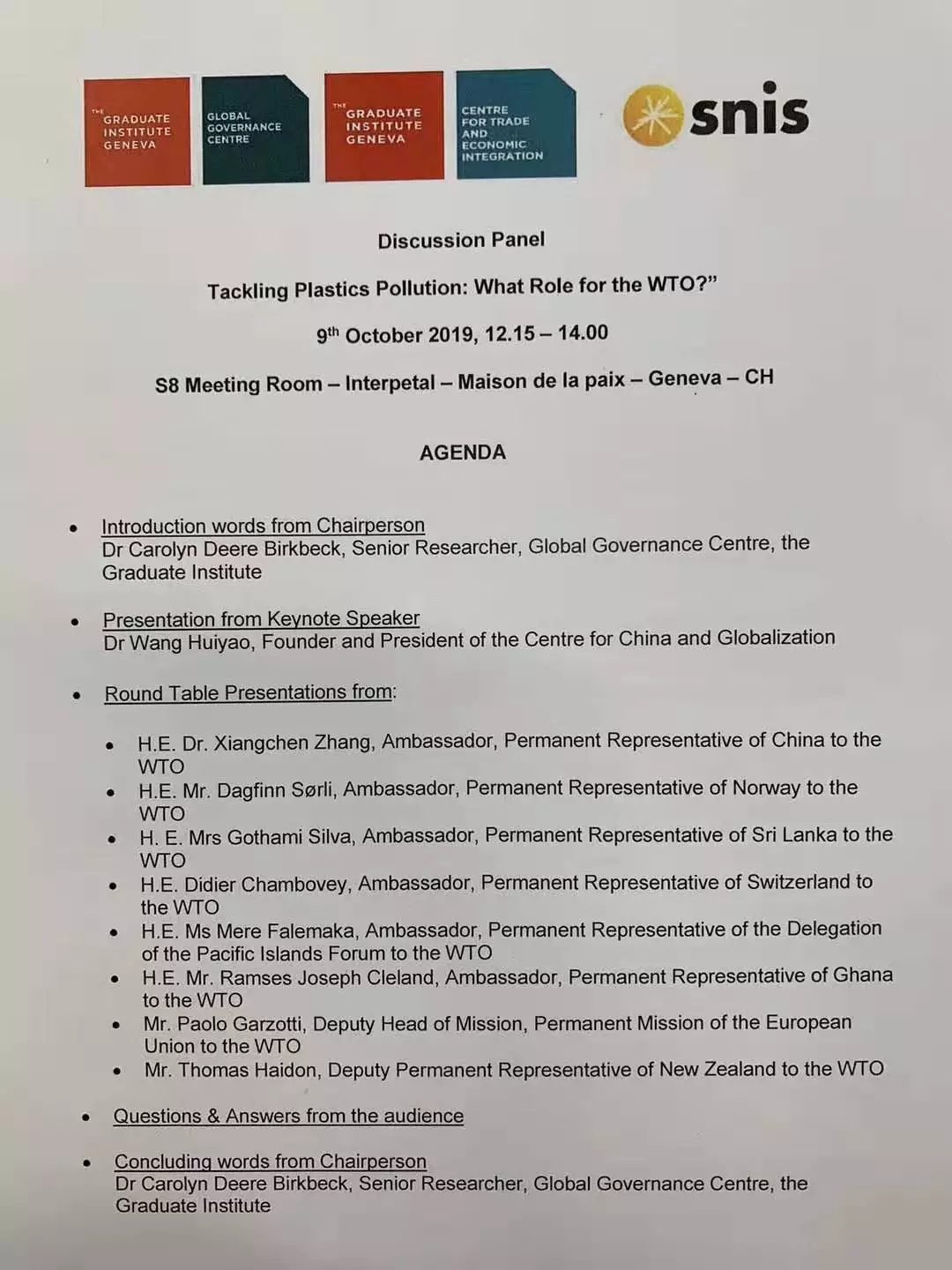
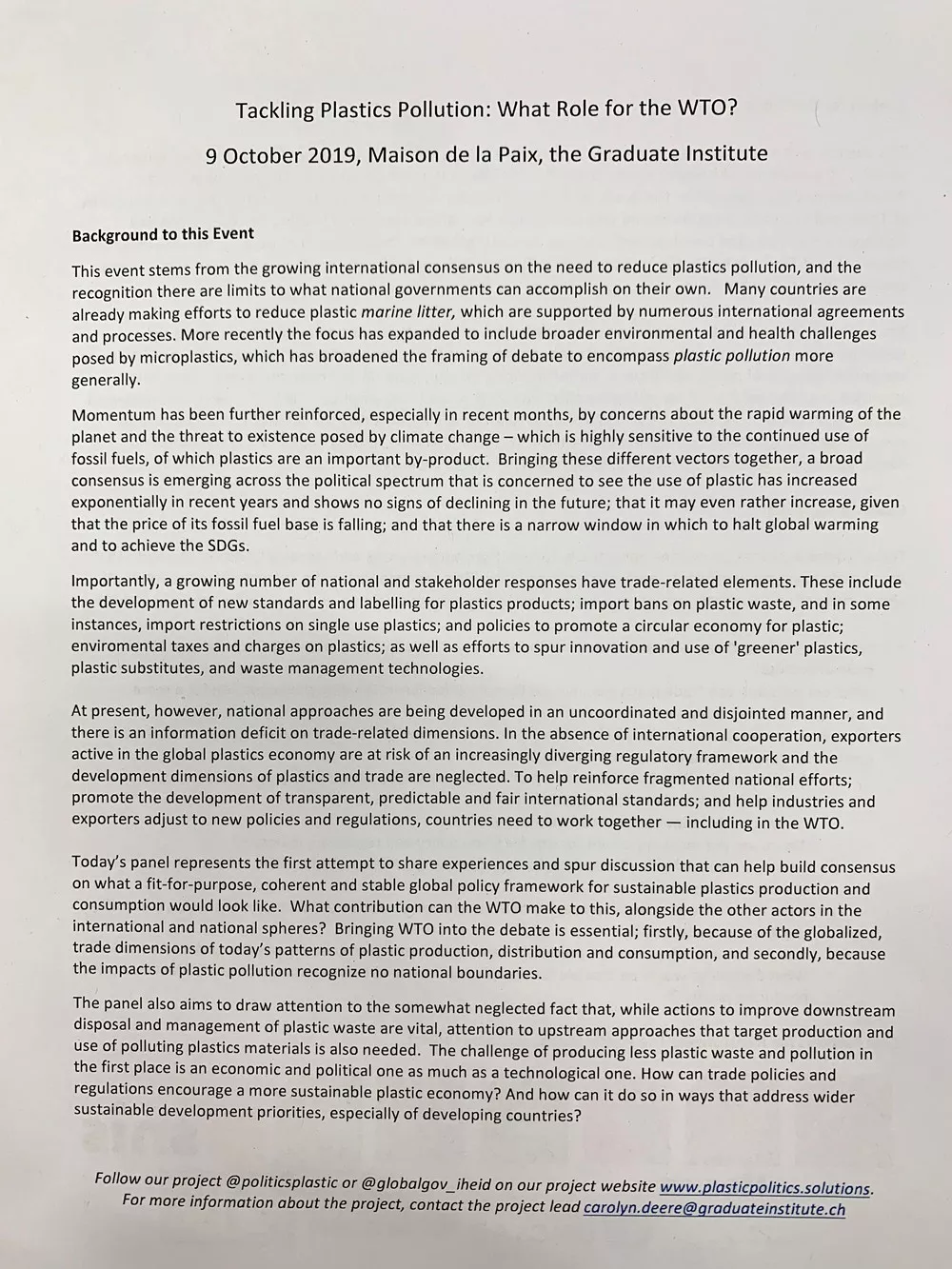
Ambassadors from each state engaged in in-depth conversation on the role for the WTO in plastic pollution management. The discussion helped to bridge divides between developing countries and developed countries through dialogue on environmental management and international cooperation.
About 2019 WTO Public Forum:
The trading landscape is increasingly characterized by changes in technology, production methods, employment patterns, demand patterns, demographics, and climate – to name a few. Last year’s WTO Public Forum considered some of the changes influencing the trading system and how global trade would evolve over the coming decades. This year’s Public Forum went a step further and considered how trade and the trading system can adapt to these changes. WTO General Secretary Roberto Azevedo delivered the welcome speech in the opening ceremony.
LocationGeneva

